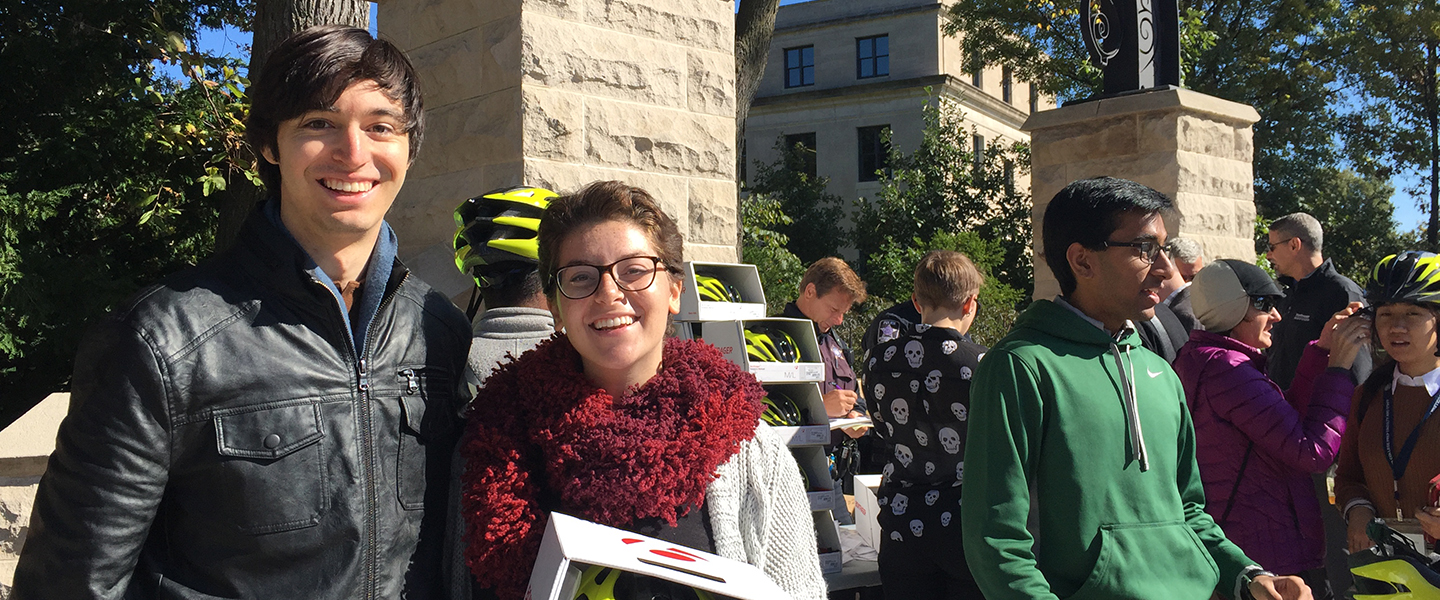
Student Group Feature: Associated Student Government Sustainability Committee
The Sustainability Committee is always looking for areas on campus that need attention and improvement. Our projects have the potential to pave the way for larger environmental changes to occur campus-wide. ”
Anand Lal-Tabak
Northwestern’s Associated Student Government (ASG) has been around since 1869. The ASG Sustainability Committee is a more recent addition to the governance structure. During 2012 to 2013 academic year, the committee, also known as SusCom, transformed from a subcommittee to a full committee as students became increasingly interested in the University’s need for environmentally friendly initiatives. This year, Weinberg sophomore Anand Lal-Tabak serves as the sustainability vice president, leading a committee of 18 members from across various schools.
SusCom has already made significant strides toward making Northwestern a greener campus. The committee helped to create the Northwestern Sustainability Fund, which was officially established in 2013. The fund allocates $50,000 per year to finance student-led projects aimed at implementing sustainable technologies and practices on campus. The largest recipient of the grant to date is the House By Northwestern project, which is currently in the process of creating a solar-powered home. The project will demonstrate sustainable living within the Evanston and Northwestern communities and will compete in the U.S. Department of Energy’s Solar Decathlon.
This year, SusCom is currently pursuing numerous other projects and initiatives. First, the academics project is addressing the inclusion of sustainability issues in academics. For instance, the group is working with faculty in Environmental Sciences and the Institute for Sustainability and Energy at Northwestern (ISEN) to incorporate sustainability themes into current curricula while also increasing environmental course offerings. Another goal of the project is to establish an environmental sciences minor. Not only will an increase in environmental science courses benefit those already studying the topic, but it will also provide students from outside the environmental science program with a wider understanding of how sustainability fits into their various fields.
The sustainable advertising project aims to reduce ground flyering while increasing sustainable advertising strategies and improving the advertising process for student groups. Based on data collected, social media and word-of-mouth advertising are more effective than flyering. Additionally, reducing the number of flyers will benefit the environment and improve the look of the overall campus. The project team is working to develop advertising strategies that will make it easier for student groups to promote their events in efficient and sustainable ways.
The resource management project has made considerable strides in many areas. In partnership with sustainNU and Northwestern Dining, posters and sustainability tips are going up in the dining halls to educate students about food composting food and sustainable dining options. The zero-waste initiative has plans to transition all serving items in football concessions to recyclable or compostable products. Successes include the installation of a plastic bag recycling station at Norris, as well as the creation of the Trash Tacklers initiative in partnership with sustainNU. Trash Tacklers provides a stipend to student groups for collecting trash and recycling at the homes games during the football season. After all, sustainability is always a win for the ‘Cats!
Anand and the SusCom members are excited about what the future holds for the committee, including the potential to organize larger collaborations between student groups and administration.
“The Sustainability Committee is always looking for areas on campus that need attention and improvement,” says Anand. “Our projects have the potential to pave the way for larger environmental changes to occur campus-wide. I look forward to seeing SusCom help make Northwestern a more sustainable, environmentally-conscious, and overall enjoyable place to be.”
He also notes that the committee wants to further tap into the voice of students and bring attention to concerns and suggestions they may have. To share your ideas or get involved, contact ASG SusCom at asg-sustainability@u.northwestern.edu.